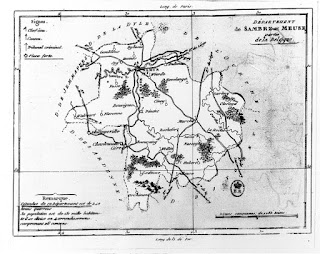 Alexander Frame Lithgow was born December 1, 1870, in Glasgow, Scotland. His parents were Samuel and Agnes Allison Lithgow, his father being a master tinsmith. When Alex (pronounced as if it was spelled "Alec") was six his family immigrated from Scotland to New Zealand and they lived in the city of Invercargill. The family, which besides his parents and Alex, included a brother and two sisters. They performed in traveling shows as the Lithgow Traveling Company. Alex was a musical prodigy and was skilled at both the cornet and the violin. In 1894 he moved to Launceston, Tasmania, mainly to be a conductor but music was a hobby for most people at that time, even for Alex. For his "day job" in Tasmania he worked as a pressman for a daily newspaper. He married his wife June 6, 1900, in a Presbyterian church. Alex was a member of the temperance movement (he wanted the sale of alcohol to be either banned or heavily regulated). Since Alex was quite prolific in composing marches, he began publishing them himself, although he never put a copyright on anything. He wrote music for wind band or brass band, mainly marches, but also other music that bands play, like overtures, waltzes, and tone poems. The Invercargill Quick March (his most famous composition) was written in 1901. As the title implies, it pays honor to Alex's New Zealand hometown. In 1921, an Australia postmaster who was once stationed in Launceston and knew Alex well wrote lyrics for Invercargill. They were originally sung with piano rolls, although the Lithgow family was very much in favor of the words:
Alexander Frame Lithgow was born December 1, 1870, in Glasgow, Scotland. His parents were Samuel and Agnes Allison Lithgow, his father being a master tinsmith. When Alex (pronounced as if it was spelled "Alec") was six his family immigrated from Scotland to New Zealand and they lived in the city of Invercargill. The family, which besides his parents and Alex, included a brother and two sisters. They performed in traveling shows as the Lithgow Traveling Company. Alex was a musical prodigy and was skilled at both the cornet and the violin. In 1894 he moved to Launceston, Tasmania, mainly to be a conductor but music was a hobby for most people at that time, even for Alex. For his "day job" in Tasmania he worked as a pressman for a daily newspaper. He married his wife June 6, 1900, in a Presbyterian church. Alex was a member of the temperance movement (he wanted the sale of alcohol to be either banned or heavily regulated). Since Alex was quite prolific in composing marches, he began publishing them himself, although he never put a copyright on anything. He wrote music for wind band or brass band, mainly marches, but also other music that bands play, like overtures, waltzes, and tone poems. The Invercargill Quick March (his most famous composition) was written in 1901. As the title implies, it pays honor to Alex's New Zealand hometown. In 1921, an Australia postmaster who was once stationed in Launceston and knew Alex well wrote lyrics for Invercargill. They were originally sung with piano rolls, although the Lithgow family was very much in favor of the words:.
Though I've sailed overseas from Invercargill
There's a yearning strong that calls me back to Southland
Where in childhood days, I used to play and be
Part of a local music family.
.
Joyous hours playing with the Garrison Band
Concerts and contesting all around New Zealand
And marching down to Dee Street, in the southernmost town.
.
The memories, of childhood, and playing tunes, I loved to learn
Someday I will return, to mountains high and green leafed fern
Oreti Beach, Waihopai, an Oyster feed, from Foveaux Strait
I cannot wait to see, who greets me, at Bluff port gate.
.
Invercargill is, the only place that I adore
And my old band pals, I long to see them all once more
Soon my ship will be, returning from the deep blue sea
To my dear old home, the gem of all the Southern Seas
Alex was busy with all kinds of musical endeavors until 1927 when his health began to fail. He retired to his home in Launceton, where he died on July 12, 1929, at the age of 58. At his graveyard service (in Carr Villa Cemetery in Launceston) several massed bands played Invercargill and other marches he composed.
Here is a list of some of his marches:
- Invercargill
- National Guard
- New South Wales
- Galvini
- The Royal Australian Navy
- Fighting Mac
- Stars and Cross
- Rylanda
- Tasma
- Sons of Australia
- Victoria
- March (Sousa wasn't the only march composer who wrote an untitled march)
- Middlington
- Canberra
- Aboriginal March
- Artillery
- Cuckoos
- Queen of the North
.
When his marches were published in North America and Europe, he was given the title, Sousa of the Antipodes. Antipodes is a funny word that means it's a place that is the opposite of wherever the person who says it is. The implication is that since these publishers are in the Northern Hemisphere and Australia and New Zealand are in the Southern Hemisphere, that makes Invercargill and Launceston in the antipodes. But for Alex in Tasmania, New York was the antipodes for him.
__________________
Tasmania is a part of Australia.




No comments:
Post a Comment